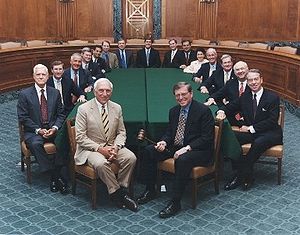Immigration reform in the United States is quickly coming to a head. As the dust from the Presidential election settles and the nation collectively exhales after our near miss with the fiscal cliff, legislators have refocused on issues that drastically impact constituents of certain key demographics.
The Washington Post explains that the driving factor that has brought the GOP to the negotiating table has been the inability of the party to capture the Latino vote. Politico argues that the concerted interest by the Republicans combined with a push by the Democrats has made reform of American Immigration policy a top legislative priority on capitol hill this year. Minorities have successfully utilized the voting pathway of political action to force some measured level of political reform.
That theme of that reform has boiled down to one word: compromise.

Individuals on both sides of the aisle have realized that passing any comprehensive immigration reform package will require bipartisan support. CNN argues that the realization of a need for bipartisan cooperation (specifically by key congressional powers such as Democratic Senator Schumer) has given way to the formation of what political pundits are calling the ‘gang of 8.’ The Washington post explains that the committee, consisting of 8 key senators (4 Democrats and 4 Republicans) have hammered out a package (of which a preliminary transcript is posted here) that rests on a couple of key planks. The first is increased border control, a non-negotiable issue for members of the GOP. The second is slightly more unconventional. In an effort to reach a true compromise, GOP members allowed for the inclusion of a path to citizenship in their reform package. The path, though long and arduous (it contains a number of key steps, the most notable of which is a requirement to pay fines and back taxes), is a key plank of the package that gives the Democratic senators on the committee something to back.
In addition to those key overarching planks, the National Review explains that the plan also demonstrates a concerted effort to improve the system of legal immigration to attract high skilled workers as well to improve employment verification and secure working rights for potential immigrants and existing illegal aliens already in the nation.
The president, in an effort to assume the role of chief legislator, has waded in and out of the immigration debate. The Washington Post explains that he most recently proposed a solution in Las Vegas as he “put the weight of his administration behind efforts to pass legislation” on Immigration Reform. Although his plan has been deemed unfeasible by Rubio (a key republican senator who is part of the ‘gang of 8’) he has brought immigration reform to the forefront. The National Journal explains that Obama’s proposal was repeatedly been blasted as “dead on arrival,” but it sends a clear message: that immigration reform will become (and already is) a key legislative issue in the foreseeable future.

Ultimately, I am of the opinion that we will soon see some sort of deal on the issue of illegal immigration. With 11 million undocumented individuals already in our country’s borders and the immense political might of the Latino community, the stakes are simply too high for the issue to remain unresolved. Though the two groups may seem resolute, with the democrats refusing to budge on a path to citizenship and the republicans intent on blocking that very path without significant border control, progress on immigration reform is inevitable. The issue is simply far too important economically, socially, and politically for gridlock to continue.












